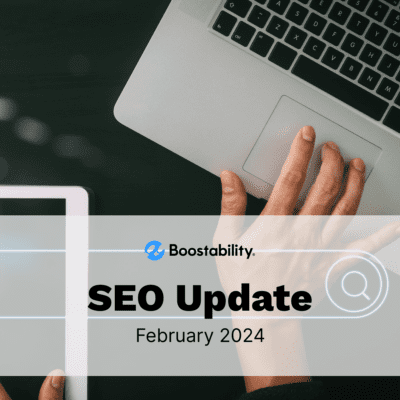In 2019, properly optimized and meaningful content remains one of the top SEO requirements for websites to dominate SERPs. But in the B2B sector, criteria for “optimized” and “meaningful” vary.
B2B SEO is about reaching professionals via search engines. To convince Google that your content is good enough to satisfy experts in your niche, it should match five specific gages.
So, where should you start?
The Difference Between B2B and B2C Content
Whether it’s B2B or B2C, your content strategy is about people. But that’s when you might hit a snag:
B2B marketing is about reaching decision makers: CMO’s, startup founders, or specialists in your niche. They look for significant and long-term investments. They need more people to weigh in on buying decisions.
So, your SEO strategy here is not about converting cold organic visitors into sales. And your content strategy here is not about writing entertaining articles that would bring tons of likes on social media.
B2B content should be credible and provide added value. It’s about understanding users’ search intent. It’s about a low bounce rate, educating the audience with professional approach, and backlinks from respectful resources in the niche.
5 Criteria of B2B Content to Rank High in Google
With these five criteria, you’ll reach the right audience and signal your content quality to search engines. Let’s get right to it:
1. Specific keywords
In B2B, consider low-volume keywords for higher ranks in Google. The thing is, your B2B clients will search for specific terms in the niche. While it’s okay for B2C to rank for “air conditioner,” B2B stands to gain from “HVAC automation system.”
In a word, prioritize relevance over search volume. Spend time sourcing relevant low-volume keywords for your content. For that, use your keyword tool but make sure to try alternative tactics too.
First, explore what you’re already ranking for. Then, check the keywords of competitors and industry publications that attract organic traffic. Choose those relevant to your audience.
Also, you can use a keyword explorer to get alternative keyword ideas. Concentrate on those low-volume and fitting the needs of your target audience. Then group them by search intent. Consider keywords that can bring value in your B2B content.

Google’s related searches will help you find keywords options too. And remember about Q&A websites and forums your target audience visits. You’ll find user-generated keywords there, which can be even of higher value: big chances are that competitors miss them.
But know when to stop: LSI still matters, and keyword stuffing is still a taboo.
2. Specific content types
In B2B, you need to rank for your product category. That is why make sure you mention it in all the content you publish on behalf of your brand, whether it’s on your website, guest posts on other sites, or reviews at business websites.
For more backlinks and, therefore, higher rankings in Google, create content that educates your target audience.
- Cornerstone content: long-form (2,000+ words) articles, comprehensive overviews, and ultimate guides on something you can help the audience do. Example: White Label SEO Marketing Ultimate Guide
- Tactical content: how-to’s or step-by-step tutorials that help your audience to solve the common problem in your industry. Example: 11 Steps for How To Increase Google Reviews for Your Business
Both are more about educating than persuading to buy from you. However, you can mention here how you solve the problem with your product and, therefore, help the market.
Such B2B content helps you build trust, show your expertise, and get links from respectful resources in your industry.
3. Specific information angle
Create your B2B content with the emphasis on branding and thought leadership. Make sure your website looks professional and branded. Update the information regularly. Maintain the high quality of your content.
Ask the most credible person in your company to write articles for your business blog. If accepting guest posts, welcome articles from niche experts only.
When searching the web, business owners look for specific answers or solutions. So make sure your B2B content brings some added value. Don’t share copybook maxims or outdated concepts.
4. Specific internal linking
Educational and valuable content is great. But you need the audience to learn about your business, right? In your B2B SEO, concentrate on your product as well.
Do the internal linking like a boss: link to relevant landing pages and “about us” static pages from blog posts.
Also, add actionable calls to action with links to signing up for newsletters, filling out a lead form, or downloading lead magnets from your website. But make sure it’s relevant to this particular post’s search intent.
5. Specific content structure
Given that you focus on specific keyword phrases to create content, structure your asset accordingly:
- Use related terminology in the text to convince Google of its relevance and expertness.
- Write short sentences and paragraphs to make your content easy to scan and read.
- Show visuals that give answers to users’ questions.
- Repurpose for social media for better engagement.
- Communicate your message through brand storytelling to build awareness and reputation of the opinion leader in the niche.
- Tell your brand stories through videos to influence such SEO rankings as dwell time and bounce rate.
- Maintain a professional voice but use the language your buyer personas speak.
The Short Version
B2B content needs to be more specific to win Google’s SERP. If you want it to rank high, make it up-to-date and valuable for your niche.
Focus your SEO strategy on low-volume and user-generated keywords. Be empathetic: educate the audience, giving solutions to their problems. And don’t forget to optimize your metadata and backlinks accordingly.
Lean on our white label SEO experts to create content that drives action and increases conversions. We’ll act as an extension of your team and deliver data-driven SEO campaigns on your behalf to your clients. Learn more about our white label SEO services today and how it will help meet both yours and your clients’ goals!
Lesley Vos is a content strategist and creator behind Bid4Papers, a writing platform for students. She contributes blog posts to publications on business and marketing, is in love with coffee and foxes, and dreams of writing a New York Times’ bestseller one day.










